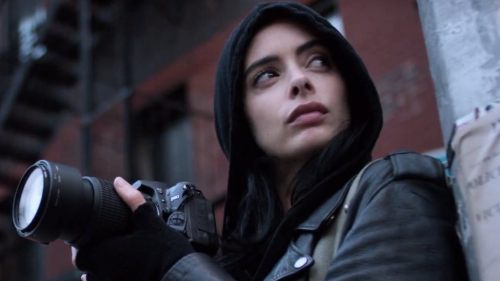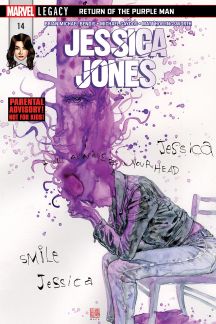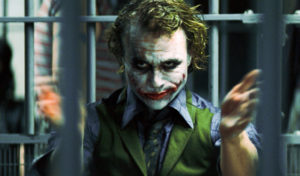A weak season for the strongest woman alive

The second season of “Jessica Jones” continues the dark and emotional story of the superpowered, alcoholic P.I. This season never quite lived up to the first, mostly due to lacking an early-season story and the absence of David Tennant’s Kilgrave.
March 15, 2018
She’s a short-tempered, traumatized, alcoholic mess, but she’s also a hero and a Defender of New York City. Most importantly, she’s back for a second season. Her name is Jessica Jones, private investigator.

Last August, Netflix released “The Defenders,” the eight-episode team up of New York City’s four street-level heroes. “The Defenders” ended with the four heroes all going their separate ways, quite similar to the end of the first “Avengers” film. Now, Netflix is going back to continue each of the original four standalone series while introducing new ones like “The Punisher.” The whole process is modeled after the phases of the Marvel Cinematic Universe, a recipe which has served the films quite well.
Will this strategy play out for the Marvel Netflix universe? Time will tell. Either way, the makers of season two of “Jessica Jones” were considerate enough to include absolutely no references to “The Defenders” season one, which means anyone who didn’t sit through it isn’t required to. Season two instead focuses on the events of season one while continuing Jessica’s story.
If you didn’t know that the second season was here, that may be because the advertising campaign for it was awful. The promotion material leading up to season two’s release on International Women’s Day last Thursday consisted of two trailers, one of which almost exclusively used footage from season one. The other largest red flag going into season two was that David Tennant’s character Kilgrave would not be there after dying in the season one finale. Kilgrave was the most brutal and horrible villain to ever appear in a Marvel show or movie, so finding a way to top him was quite the task.
Sadly, the second season of “Jessica Jones” never quite surpasses its first season, which won a Peabody Award in 2016. In simple terms, the new season is a mixed bag. It has its fantastic moments, but is caught in limbo — somewhere between just good and okay — for most of the season.
The hardest part to watch is the beginning. Without a villain like Kilgrave, the show is missing most of its driving force and barely managed to crawl through its first six episodes. The main story focuses on Jessica (Krysten Ritter) looking into IGH, a mysterious organization that was responsible for giving her her powers. Jessica’s friends Trish (Rachael Taylor) and Malcolm (Eka Darville) help her with this investigation while trying to promote their own careers. Meanwhile, Jeri Hogarth (Carrie-Anne Moss), the cutthroat lawyer from season one, faces her own mortality after receiving a dark diagnosis.
The “a-secret-organization-experimented-on-me-and-gave-me-powers” storyline has been done many times before. We’ve all seen enough Wolverine movies to know how it goes by now. Faced with the challenge of adding some originality to the story, the show introduces a rogue experiment from IGH that may be more powerful and is most certainly more dangerous than Jessica. This “monster” commits some murders from the shadows, but nothing it does can compare to the atrocities the first season presented us with: rape, mind control, forced suicide, patricide, and matricide. Although the killings in season two are terrible acts, it doesn’t mean much after watching season one.
Five episodes go by, and the most powerful moments we see are when Jessica faces the consequences of killing Kilgrave and when Jessica mourns her dead family. Jeri (almost) stops being a horrible person due to her looming demise. Trish, who used to be a child TV star, faces events from her past that reflect the perverse and malicious side of Hollywood.
This is something “Jessica Jones” has excelled at in both seasons: addressing real-world issues within its fictional story. In season one, Jessica suffers horrific abuse, rape, and total mind control. Working past her trauma is an opponent as large and as powerful as Kilgrave himself. In season two, the issues of male perversion in Hollywood and women’s rights are addressed by the supporting characters while Jessica struggles with grief, alcoholism, family, and the moral obligations of being powered. As viewers, we may not have powers, but we have all experienced the loss of a loved one. Jessica’s world is a reflection of our own.
There were, of course, cool easter egg moments that fans of Jessica Jones will love. The greatest of these is due to a new character, Oscar Arocho (J.R. Ramirez), who moves into Jessica’s apartment building. Oscar is a painter, and he paints a portrait of Jessica midway through the season. His artistic style perfectly matches the style that has defined the covers for the Jessica Jones comics for years now. Oscar’s work in the show is a nice nod to all the nerds out there who both read and watch Jessica Jones.
As the season progressed, a series of plot twists helped save it. The second half of the season, starting with episode seven, pulled itself out of the quagmire of its own aimless subplots and told a worthwhile story. The “monster” is unmasked and her identity changes the course of the show. By episode eleven (the best in this season by far), the show is right where it wants to be. Jessica faces some powerful moral dilemmas: When is murder justified? Should Jessica be obliged to use her powers to help people, even considering how badly doing so has damaged her before? Is she a good person, or is it her nature to push people away and hurt them?
The greatest aspect of the Netflix Marvel universe is its ability to tell darker and more provocative stories from the street level of a world where men fly in iron suits, robots try to destroy the world, and superheroes are everywhere.
This truly does not require thirteen episodes per season. It takes an act as simple as Jessica picking up her family’s ashes to turn a superhuman character into someone with a real level of depth. These longer stories can’t be shown in the movies, so the miniseries of Netflix have the opportunity to take bold strokes and tell stories that matter.
Hopefully the future of the Netflix Marvel universe will be a dark one, because darkness in TV allows us to recognize and change the darkness in our own lives.







